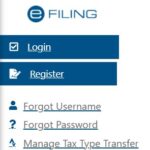Starting a small business in South Africa? Managing your taxes can seem overwhelming, but this step-by-step guide will help you stay on track and meet your obligations with ease.The South African Revenue Service (SARS) provides support for small businesses through a dedicated division focused on the needs and interests of Small, Medium, and Micro Enterprises (SMMEs). This division aims to simplify tax obligations for SMMEs and help them comply with tax laws. The ingformation on this page has been sourced from he many guides on the SARS website which offers several resources and services to the public. Please check the SARS website for updated information that we may have missed
It is important to note that while this information is directly derived from the provided sources, it is general in nature and specific advice should be sought from a tax professional.

Step 1
Choose Your Business Structure
Sole Proprietorship: You run the business alone. Tax is included in your personal income tax return.
Partnership: Two or more owners share profits and each pay tax on their share.
Close Corporation (CC): A legal entity that must register for tax separately.
Private Company: A separate legal entity responsible for its own tax payments.
Step 2
Register Your Business with CIPC
If starting a company, register with the Companies and Intellectual Property Commission (CIPC). SARS will automatically issue a tax reference number.
Form to Use: IT77C – Application for Company Registration
Step 3
Register with SARS
- Register at a SARS service centre or online via SARS eFiling.
- Once registered, activate eFiling for online transactions.

No matter your business type, register with SARS for a tax reference number within 21 business days of becoming liable for tax.

Forms to Use:
CRA01 – Confirmation of Business Address
EMP-REG-03-G01 – Employer Registration Guide
EMP128 – Confirmation of Partnership (If your business is a partnership)
Step 4
Understand Your Tax Obligations
Your business may need to pay various taxes:
| Obligation | More info link | Description |
|---|---|---|
| Income Tax: | Gen09: Tax guide for small businesses LAPD-TT-G01: Tax Guide for Micro Businesses | Based on taxable income. |
| Provisional Tax: | GEN-PT-01-G01: Guide for Provisional Tax External Guide.pdf GEN-PT-01-G02: How to eFile your Provisional Tax Return | Advance payments on income tax. |
| Value-Added Tax (VAT): | GEN-ELEC-04-G01: Guide for completing the Value Added Tax VAT201 Declaration LAPD-VAT-G0: VAT 403 Vendors and Employers Trade Classification Guide. LAPD-VAT-G04: VAT 411 Guide for Entertainment Accommodation and Catering | If turnover exceeds R1 million/year (or optional over R50,000/year). |
| Pay-As-You-Earn (PAYE): | If you employ staff earning above R95,750 per year. | |
| Skills Development Levy (SDL): | If payroll exceeds R500,000 per year. | |
| Unemployment Insurance Fund (UIF): | Mandatory for all employees. | |
| Dividends Tax & Withholding Tax: | If your business is a company or CC, you may have to withhold dividends tax on dividends paid to beneficial owners. | |
| Other taxes | Be aware of other taxes such as donations tax, estate duty, securities transfer tax, transfer duty, environmental levies, and customs and excise duties. |

Step 5
Check Tax Relief Options
Your business may qualify for tax benefits:
Special Economic Zones (SEZ): Tax incentives for businesses in designated areas.
Small Business Corporation (SBC): Lower tax rates for qualifying companies.
Micro Business (Turnover Tax): A simplified tax system for businesses earning less than R1 million/year.
Step 6
Keep accurate records
Maintain detailed financial records such as:
Cash books, invoices, stock lists, and bank statements.
Keep records for at least five years from submission.


Step 8
Stay Compliant
Provide Tax Clearance Information for tenders or contracts.
Update SARS within 21 days of business changes (address, bank details, etc.).
Step 9
Seek Assistance When Needed
Visit the SARS website for up-to-date info.
Call the SARS Service Centre for help.
Consult a tax advisor if needed.
Use the SARS Complaints Office for unresolved issues.

Key Forms & Guides for Tax Areas
📄 Income Tax Forms:
- IT-ELEC-03-G01 – Company Income Tax Return Guide
- IT180 – Employer Deduction Claim Guide
📄 Other Relevant Forms:
- ASPOA – Tax Practitioner Power of Attorney
- LAPD-TAdm-G06 – Dispute Resolution Guide
📄 Income Tax Forms:
- IT-ELEC-03-G01 – Company Income Tax Return Guide
- IT180 – Declaration by Employer to Claim Deduction against Learnerships – External Form
📄 Other Relevant Forms:
- ASPOA – Tax Practitioner Power of Attorney
- EI2D-Small-Business-Funding-Entity-Written-Undertaking-External-Form.
By following these steps and keeping informed about the relevant tax laws, your small business will be better equipped to meet its tax obligations and avoid potential penalties. Remember to consult the SARS website and other resources regularly for any updates or changes to the tax legislation.
Final Tip: Stay informed about tax law changes and use SARS resources to keep your business compliant. By following these steps, you’ll ensure smooth tax management for your small business!




